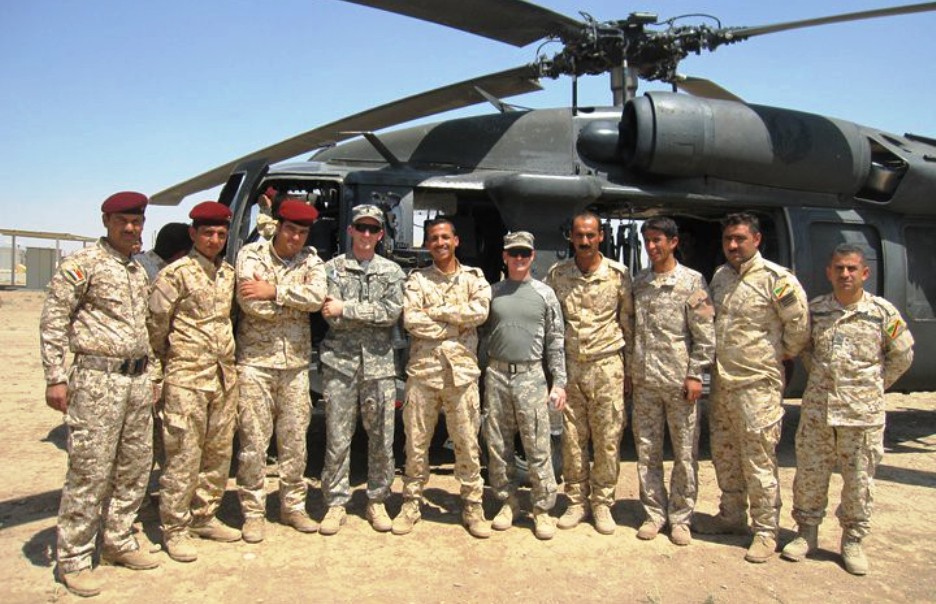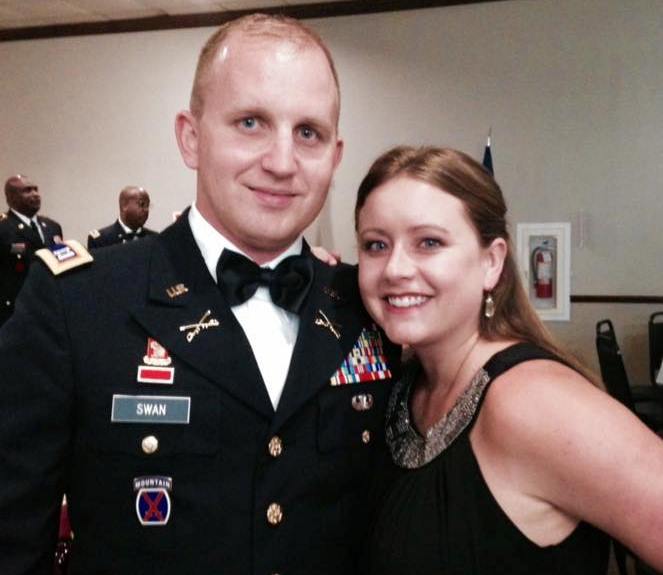In a political season that has seen far too much prejudice, fear and hate, David Swan, a U.S. Army soldier, reminds us all just what is important and why in an open letter he writes to Muslims.

David Swan, fourth from the left, with Kurdish soldiers in Iraq, 2009.
In response to a reporter asking why he wrote it, Swan said, “There is so much divisive rhetoric being shouted on social and traditional media, that I feel like the ‘reasonable people’ are just choosing to remain silent because they don’t even want to be a part of the conversation anymore…
“The goals of our enemies,” Swan says, “are to divide us, spread fear and hate, and instigate global chaos. We, as individuals, can’t do much about geopolitics. But we can love each other and break down these walls our enemies are building between us. And maybe, just maybe, doing so may restore some faith between fellow humans and protect a few disenfranchised Muslims from buying into this radical ideology.”
In receiving permission to run David’s letter, I agreed to quote no more than half of the original text. I encourage all who read this to visit David’s website, read the entire letter and leave a comment of support.
Dear Muslims,
“I am an American, a Christian, and a U.S. Army Soldier. I’m white, I grew up in the South, and I love Jesus, as well as the life of freedom and prosperity that my country has enabled me to have. I have fought in Iraq and lost several really good friends there.
“I don’t hate you. I don’t fear you. I don’t want you to leave this country. I want to know you, your heart, your struggles, and your joys. …
“Sadly [hateful rhetoric] is producing the full range of human fear responses toward Arab-looking people — from a subtle sense of suspicion and unease communicated with sideways glances at each other on the street, to full-scale Islamophobia and racism. …
“This growing divide between our cultures makes recruiting more disaffected Muslim youth even easier for them. We share a common enemy in the radical Islamist. They want to drive us apart and to fear each other. They want your children to grow up hating my children. … Every terrorist attack against innocent people in this world is an attack against peace and normalcy. It’s designed to stir a violent response from those attacked and create more hatred between ‘us and them.’
“To anyone reading this letter…Christians, Muslims, Jews, Atheist, or whatever, we simply cannot let them win. We can’t allow them to make us hate each other. Fear and hate are their most effective weapons and we must neutralize them in order to break the cycle.
“If you truly want peace, I challenge you to befriend someone ‘on the other side.’ … We all want to make a living, raise our families in a safe place, and live in peace.
“If there happen to be any Muslims reading this that have already been radicalized, I feel sorry for you. You have bought into a lie. You have been promised a glory for your actions that does not exist. We take no joy in killing you, but we will do it because you have forced our hand. … May God have mercy on your souls.”
Respectfully,
DS

Swan with his wife Torrey.
Reading David’s letter reminded me of a contribution from writer Norman Corwin to my book, What Do You Stand For? Corwin’s eloquent message at the end of a story seems just as vital now.
“Look, let’s not kid ourselves. It would be foolish to hope that kindness, consideration, and compassion will right wrongs, heal wounds, keep the peace, and set the new millennium on course to recover from inherited ills. That would be asking a lot from even a heaven-sent methodology, and heaven is not in that business. But why linger? Why wait to begin planting seeds, however long they take to germinate? It took us 200-plus years to get into the straits we now occupy, and it may take us long again to get out, but there must be a beginning.
“It comes down to the value of exemplars, which can be either positive or negative, and it works like this: Because of the principle that a calm sea and a prosperous voyage do not make news but a shipwreck does, most circulated news is bad news. The badness of it is publicized, and the negative publicity attracts more of the same through imitation.
“But good can be as communicable and catching as evil, and this is where kindness and compassion come into play. So long as conscionable and caring people are around, so long as they are not muted or exiled, so long as they remain alert in thought and action, there is a chance for contagions of the right stuff, whereby democracy becomes no longer a choice of lesser evils, whereby the right to vote is not betrayed by staying away from the polls, whereby the freedoms of speech, assembly, religion, and dissent are never forsaken.”
Comments









